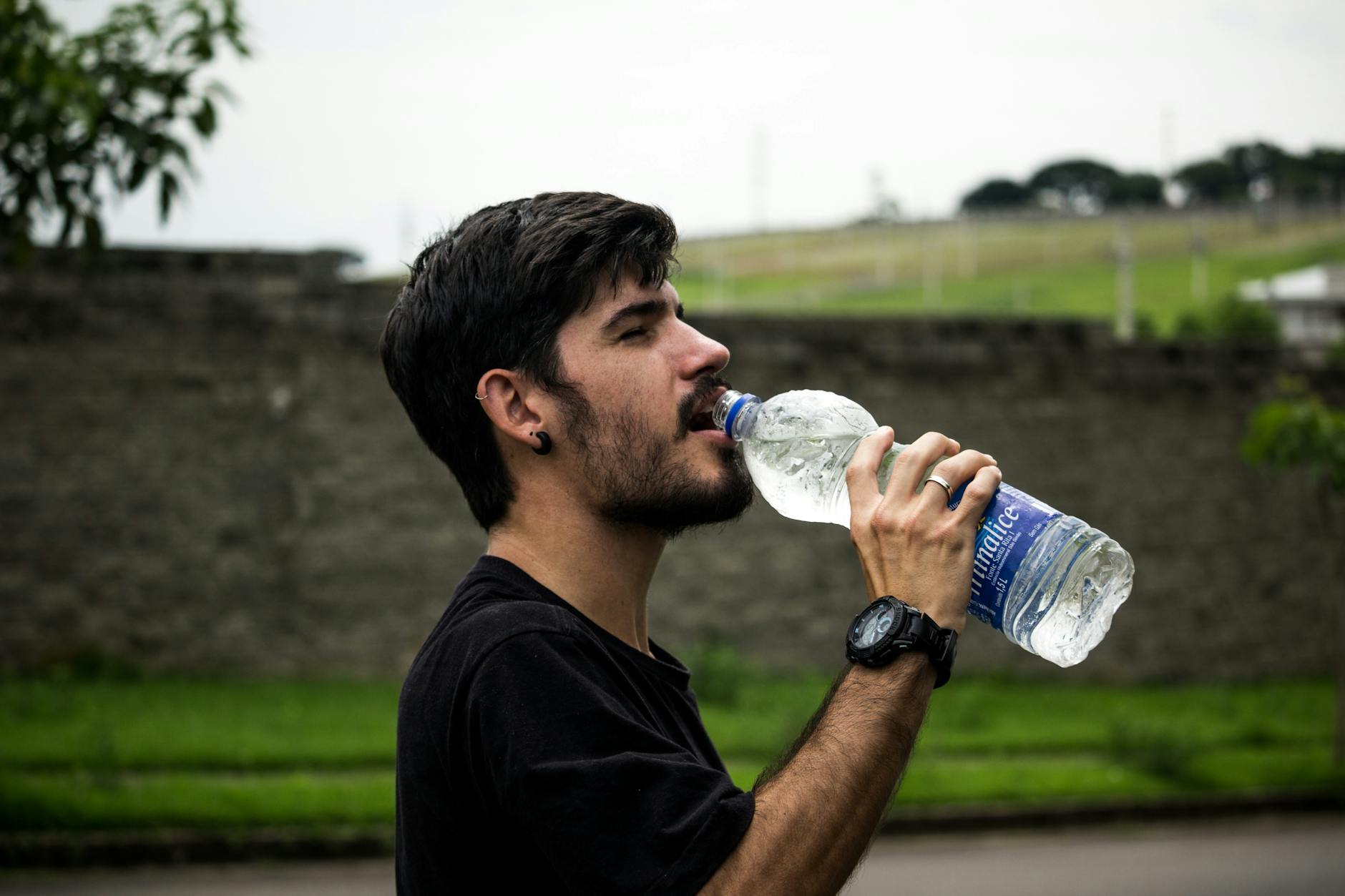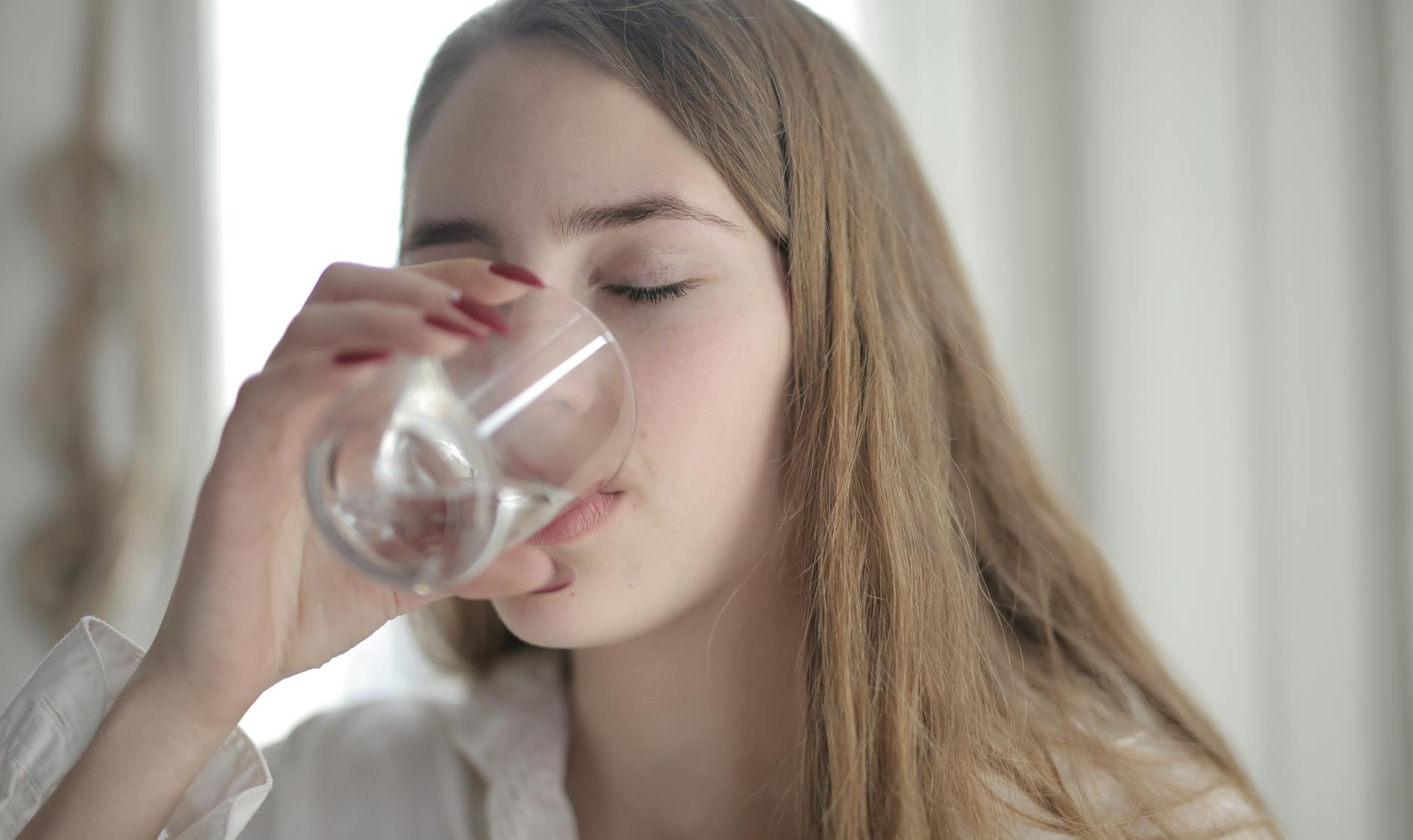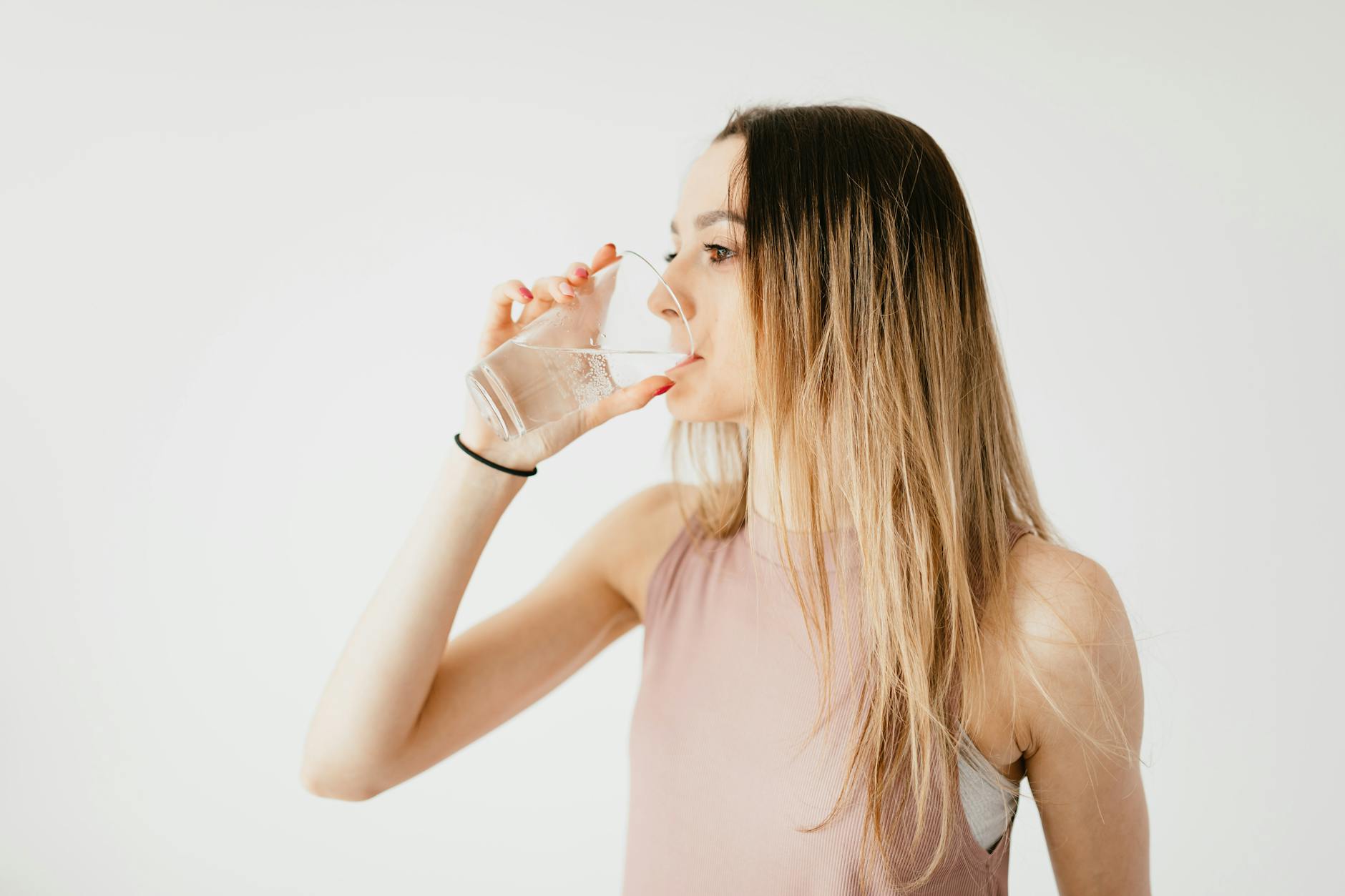Drinking water at late night is generally safe and can even be beneficial for your health. Staying hydrated throughout the day is important for overall well-being, and drinking water before bed can help ensure that your body remains hydrated overnight.
However, it’s essential to strike a balance. While staying hydrated is important, drinking excessive amounts of water before bedtime might lead to disruptions in sleep due to frequent trips to the bathroom.
It’s advisable to drink water steadily throughout the day to maintain hydration without overloading your system right before sleep.

Additionally, if you have certain medical conditions such as heart or kidney issues that require monitoring fluid intake, it’s best to consult with your healthcare provider about the appropriate amount of water to drink and when to drink it.
Overall, listen to your body’s signals and adjust your water intake accordingly to ensure both hydration and a good night’s rest.
Important Things to Keep in Mind while Drinking Water at Late Night
Drinking water at late night is generally safe, but it’s important to be mindful of a few factors:
- Hydration: Drinking water before bed can help prevent dehydration, especially if you’ve been active or haven’t consumed enough fluids throughout the day.
- Sleep disruption: Consuming excessive amounts of water right before bedtime might lead to disruptions in sleep due to the need to urinate frequently. To avoid this, it’s advisable to drink water steadily throughout the day and reduce intake closer to bedtime.
- Medical conditions: Individuals with certain medical conditions, such as heart or kidney issues, may need to monitor their fluid intake more closely. In such cases, it’s best to follow the guidance of a healthcare provider regarding when and how much water to drink.
Specific Time for Drinking Water Late at Night
The specific time for drinking water late at night can vary depending on individual factors such as bedtime, sleep quality, and personal habits. However, here are some general guidelines to consider:
- Hydrate gradually: Instead of drinking a large amount of water all at once before bed, try to hydrate gradually throughout the evening. This can help prevent the need for frequent bathroom trips during the night.
- Finish drinking water well before bedtime: Aim to finish drinking water at least an hour or two before bedtime to minimize the likelihood of sleep disruption due to bathroom visits.
- Listen to your body: Pay attention to your body’s signals for thirst. If you feel thirsty or have a dry mouth before bedtime, it’s okay to drink a small amount of water to hydrate.
- Consider personal habits: If you tend to wake up during the night feeling thirsty, you might benefit from keeping a small glass of water by your bedside to sip if needed.

Ultimately, the key is to find a balance that works for you, considering factors such as your bedtime routine, sleep quality, and individual hydration needs.
If you have specific concerns or medical conditions, it’s always a good idea to consult with a healthcare professional for personalized advice.
-

Ayurvedic Biohacking: Ancient Wisdom Meets Modern Wellness
-

Sushruta Holistic Healing: Ancient Wisdom for 21st Century Wellness
-

Tridoshic Fitness: A Balanced Ayurvedic Approach to Movement & Vitality
-

Chrono-Fitness: Unlocking Peak Performance with Circadian-Based Training
How much Liters of Water Drinking at Late Night Safe?
The amount of water that is safe to drink at night can vary depending on individual factors such as age, weight, activity level, and overall health. However, there isn’t a specific recommendation for a maximum amount of water to drink at night. Instead, it’s more about maintaining hydration throughout the day and being mindful of your body’s signals.
As a general guideline, it’s typically safe to drink enough water to satisfy thirst and ensure hydration without overloading your system before bedtime.

It’s advisable to avoid excessive intake of water late at night, as this could lead to disruptions in sleep due to frequent trips to the bathroom.
Instead of focusing on a specific quantity of water to drink at night, consider the following tips:
- Drink water steadily throughout the day to maintain hydration.
- Pay attention to your body’s signals for thirst. If you feel thirsty before bedtime, it’s okay to drink a small amount of water to satisfy your thirst.
- Limit intake of fluids closer to bedtime to reduce the likelihood of sleep disturbances due to bathroom visits.
- If you have specific concerns about fluid intake at night, such as managing certain medical conditions, it’s best to consult with a healthcare professional for personalized guidance.
Summary
Ultimately, the goal is to stay adequately hydrated while also ensuring a restful night’s sleep. Listening to your body and adjusting your water intake accordingly can help achieve this balance.
Important: Additionally, if you have certain medical conditions such as heart or kidney issues that require monitoring fluid intake, it’s best to consult with your healthcare provider about the appropriate amount of water to drink and when to drink it. Overall, listen to your body’s signals and adjust your water intake accordingly to ensure both hydration and a good night’s rest.
If there is any suggestion/feedback you can contact us from below option:



Fantastic site A lot of helpful info here Im sending it to some buddies ans additionally sharing in delicious And naturally thanks on your sweat
Stumbling upon this website was such a delightful find. The layout is clean and inviting, making it a pleasure to explore the terrific content. I’m incredibly impressed by the level of effort and passion that clearly goes into maintaining such a valuable online space.
I wanted to express how amazing your post is. I could tell you are an authority on this subject because of how obvious it is. If everything is up to you, I would want to follow your feed so I can be informed when you publish new content. Many thanks, and keep up the fantastic work.
Your writing has a way of resonating with me on a deep level. It’s clear that you put a lot of thought and effort into each piece, and it certainly doesn’t go unnoticed.